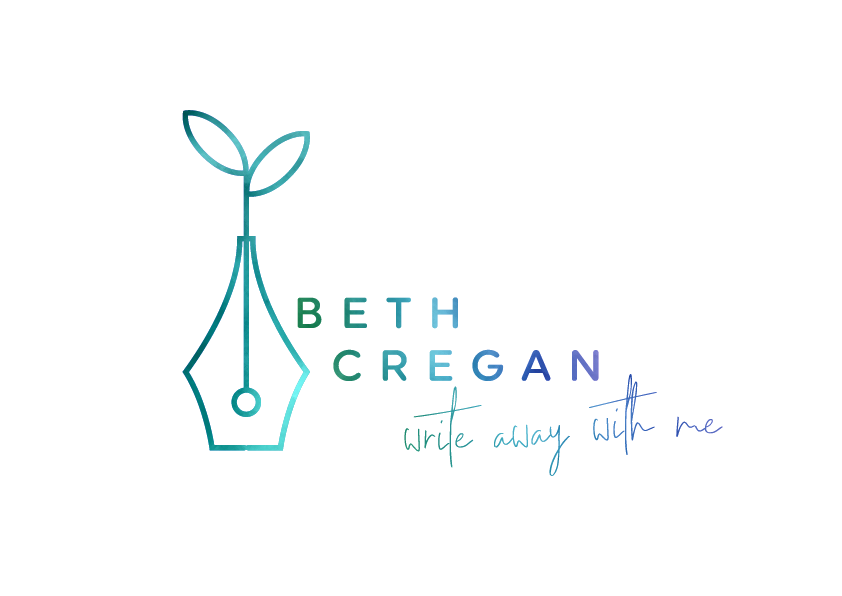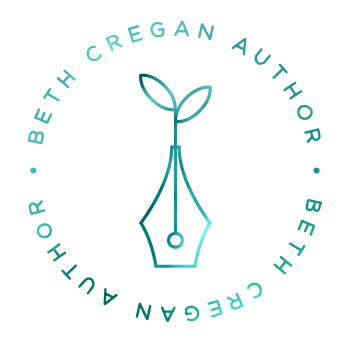Journaling is the cornerstone of my morning routine. I get up, make my coffee or chai and then sit down to write. I might write in the half light of my office or curl up on the sofa under my yoga blanket. I don't fuss over word counts or perfect sentences. Some days, a stream of consciousness spills out onto the page, while other days I might choose a reflective prompt or jot down a quick haiku. I don’t have a fixed or rigid structure; I keep it wide open, but I rarely choose to skip this daily opportunity to meet myself on the page. My journey with journaling began during high school, but it wasn't until I started my business 14 years ago that it evolved into a reliable morning ritual. Many years later, it remains an anchor in my daily routine. In my earlier years, as our daughters were growing up, those quiet moments in the morning were my sanctuary—a calm space to check in with myself before the daily whirlwind of family life spun into action.
For me, writing is and always has been, an essential thinking tool, a method for unravelling the jumble in my head. A space to dream big dreams. Seeing my thoughts on paper brings a semblance of order and meaning to my world. It's not about crafting poetic prose either, journaling is a practical and interactive form of writing that infuses my day with clarity and grace. It allows me to untangle ideas, play with imagery, understand my emotions and navigate relationships. Sometimes I use journaling to visualise the day ahead and sometimes I check in with myself in the evening to catch important learnings or ideas.
I also like to practice an abstract form of journaling that I call active imagining. I've penned thoughts to my body, (especially my knee joints!) and even written to my fear and anger. On a recent solo writing retreat, I wrote to my imagination. I've found great solace too, in writing to my parents, family and friends who have passed, seeking their guidance - a unique bridge of words that connects my past with my present. It might sound quirky, but writing back to myself and having a conversation on paper often yields surprising insights. It's a very practical way for me to tap into my inner wisdom. We often have the answers we seek, we just need to make time to listen.
As you contemplate self-care practices and new ways to embrace the coming year, I recommend journaling as the ultimate personal development life hack! Its absolute simplicity means it is often overlooked but don’t be fooled, a journaling practice is transformative. I offer the following tips to get started from my personal experience:
Do It Your Way:
Keep your approach to journaling refreshingly simple and open. Whether it’s free writing, reflective prompts, haikus, or making lists, having a flexible and open attitude leads to a dynamic journaling experience. Remember too, there is no right or wrong way to journal. There is no perfect time of day either. Do what works. Let your journaling practice reflect you and your stage of life.
Create a Ritual:
Developing a regular journaling ritual offers you a certain steadfastness, especially during hectic times. We spend so much of our lives focused externally but we sometimes forget how important it is to nurture and sustain our inner world. Sensory cues like brewing herbal tea, lighting a candle, or playing soothing music can signal the transition into your sacred journaling space.
Explore Different Styles:
Try to experiment with different journaling styles. It keeps your practice lively and provides unique perspectives and insights. Change up your style to suit your mood and needs. I know if I am feeling particularly tired or sluggish, I will often start with an inspiring list or a brainstorm. If I am worried about something, then free writing gets my thoughts and feelings down on the page. If I’m on holidays, I’ll often write poetry or prose to capture memories and places.
Suspend Judgment:
Over time, I’ve trained my inner critic to quieten down the noise during my morning journaling. This writing is for an audience of one - you! Fostering self-expression without censorship leads to unexpected revelations and a deeper connection to your intuition. I’m often so surprised by what turns up on the page.
Connect With The Past and Present:
Journaling is not only a tool for self-reflection but also a valuable means of connecting with your personal identity and history. Writing to aspects of yourself or those who have passed can be therapeutic and cathartic. I lost a very dear friend last year and active imagining has helped me grieve and heal.
A regular journaling practice is a powerful tool for self-discovery and wellbeing. Journaling is a dynamic personal development tool, uniquely tailored to you, an authentic representation of your thoughts and emotions over time. Here's to a year ahead filled with clarity, connection, and the profound discoveries that journaling can bring.
In my book Time to Write: A Powerful Writing Practice for your Classroom, I share ten personal writing activities that you can share with your students to develop a journaling practice. Many of them are the sorts of prompts and ideas I share with adult writers too. You can order my book through Amba Press.









